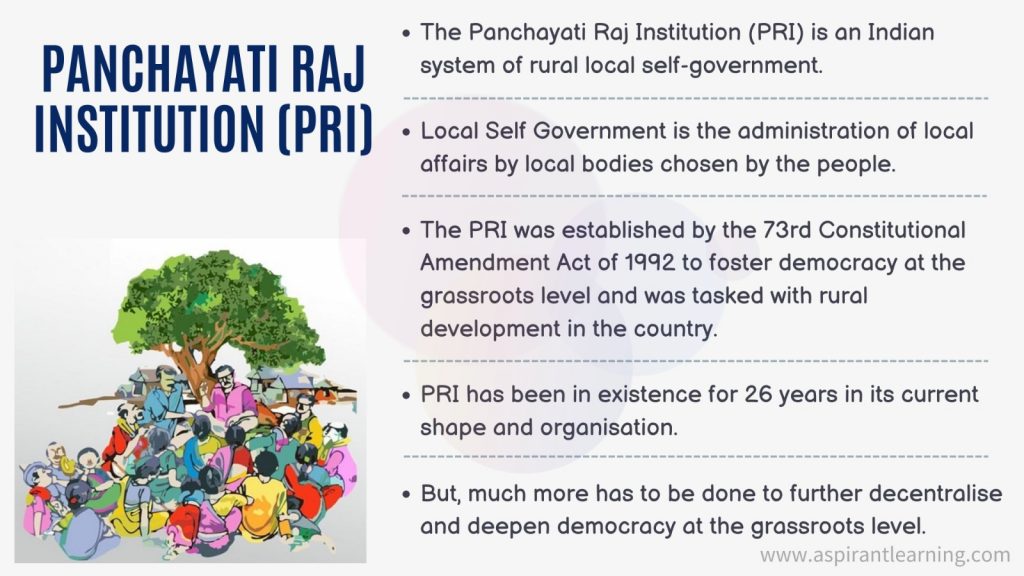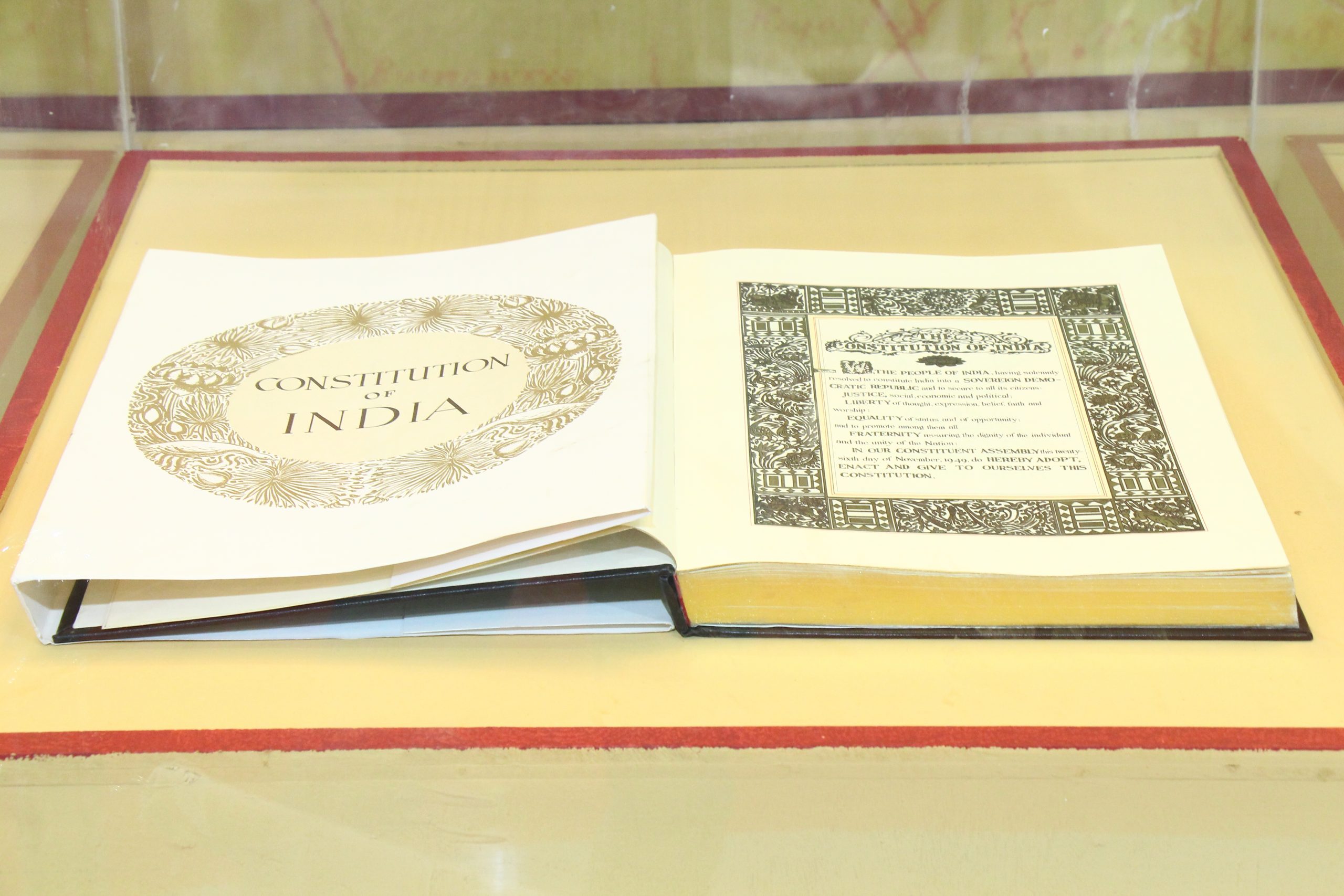News Highlight
Thirty years after the 73rd and 74th amendments, decentralisation of power and resources is more showy than real.
Key Takeaway
- The 73rd and 74th Amendments to the Indian Constitution will be 30 years old in 2023.
- India’s municipal administration still requires many technical, administrative, and budgetary solutions.
Local Government
- About
- Local government governs at the village and district levels.
- The government closest to the people gets involved in daily life and tries to address problems for ordinary residents.
- Democracy is about meaningful engagement as well as accountability.
- As a result, strong and vibrant local governments provide active involvement and intentional accountability.
- Evolution
- Lord Rippon, the then-Viceroy of India, tried to establish an elected local government council in 1882.
- Village Panchayats were established in numerous provinces following the Government of India Act of 1919.
- And the tendency continued after the Government of India Act of 1935.
- Local government was assigned to the states when the Constitution was written, and it is one of the requirements of the DPSP.
- Following independence, a three-tier Panchayati Raj system of local administration for rural areas was advocated.
- As a result, certain states, like Gujarat and Maharashtra, embraced the system of elected local bodies (1960).
- Ultimately, the 73rd and 74th Constitutional Amendments were approved by Parliament in 1992.
- The 73rd Amendment concerns rural local governments, known as Panchayati Raj Institutions (PRIs).
- The 74th Amendment made provisions for the urban local government (Nagarpalikas).
73rd Constitutional Amendment Act
- The 73rd Constitutional Amendment Act of 1992 established the Panchayati Raj Institution.
- This act established a new Part-IX to the Indian Constitution, containing provisions from Articles 243 to 243 O.
- Furthermore, the act introduced a new 11th Schedule to the Constitution, which covers 29 functional elements of the panchayats.
74th Constitutional Amendment Act
- Urban local councils were constitutionalised under the 74th Amendment Act during the rule of P.V. Narasimha Rao’s government in 1992.
- It came into force on 1st June 1993.
- It added Part IX-A, which includes requirements from Articles 243-P to 243-ZG.
- Furthermore, the act inserted the 12th Schedule into the Constitution.
- It has 18 functional Municipalities elements.
Positive Aspects of Democratic Decentralisation in India
- Empowerment of Local Communities
- Local communities now have more capacity to participate in decision-making processes.
- As well as to undertake development projects based on their individual needs and goals, thanks to democratic decentralisation.
- This has resulted in increased citizen participation in governance and decision-making processes.
- Accountability and Transparency
- Decentralisation has also increased government accountability and transparency.
- Local governments are more directly accountable to citizens, and decision-making procedures are more transparent and accessible to the public.
- Promotion of Diversity and Inclusivity
- Democratic decentralisation has increased the participation of marginalised populations in decision-making processes.
- This has resulted in more inclusive policies that accommodate all residents’ needs and interests, regardless of their social, economic, or cultural backgrounds.
Challenges Related to Decentralisation in India
- Uneven Distribution of Power and Resources
- Decentralisation has been implemented unevenly across India’s states and regions.
- It results in discrepancies in power and resource distribution.
- Some governments and areas have been more successful than others in implementing decentralisation.
- It results in uneven development outcomes.
- Infrastructural Loopholes
- Many Gram Panchayats (GPs) do not have their own building and must share space with schools, anganwadis, and other organisations.
- While some have their structure, many lack essential amenities like bathrooms, running water, and electricity.
- Although Panchayats have internet access, it is not always operational.
- Panchayat officials must travel to Block Development offices for data entry, which delays the work.

Way Forward
- Strengthening Local Government Institutions
- In India, the institutional foundation for local governance needs to be enhanced by giving them more autonomy, resources, and capabilities.
- This can be accomplished by modifying laws, regulations, and processes that impede the operation of local government institutions.
- Community Participation
- The success of democratic decentralisation depends on residents actively participating in decision-making and implementing local development plans.
- Awareness campaigns, public gatherings, and consultations can all help to increase community participation.
Pic Courtesy: The Hindu
Content Source: Indian Express



